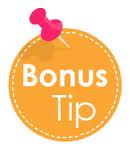3 Ways to Make a Pharmacy Director Yawn in an Interview
 Planning on interviewing this year? Even if you aren’t, if you ever interview again in your career, you can benefit from knowing this. Here are some surefire ways to make a potential pharmacy employer yawn in an interview:
Planning on interviewing this year? Even if you aren’t, if you ever interview again in your career, you can benefit from knowing this. Here are some surefire ways to make a potential pharmacy employer yawn in an interview:
1. Tell them what you’ve done and never talk about the reasons why it would benefit them. Many of us do this. We describe our job responsibilities….and don’t say much beyond that. It can sound very similar to what another pharmacist you’re competing with would say. If you want to stand out from your competition, go one step further. Describe what that would mean for the employer.
 For example, if you’re a clinical/staff pharmacist in the ambulatory care setting, instead of saying “I contribute to P&T committee meetings and help with med safety initiatives”, describe right away an example of a major accomplishment and the reasons why doing what you did would benefit them: “As part of my role of being a clinical/staff pharmacist, I worked on a project that helped reduce medication errors by X% over 12 months. This helped with medication safety and encouraged accuracy in the pharmacy.”
For example, if you’re a clinical/staff pharmacist in the ambulatory care setting, instead of saying “I contribute to P&T committee meetings and help with med safety initiatives”, describe right away an example of a major accomplishment and the reasons why doing what you did would benefit them: “As part of my role of being a clinical/staff pharmacist, I worked on a project that helped reduce medication errors by X% over 12 months. This helped with medication safety and encouraged accuracy in the pharmacy.”
Are you starting to see the power of sharing the benefit of what you did? Change this one thing about the way you interview, and you will impress the interviewer and increase your chances for getting a job you want, vs. someone else who didn’t know better.
 2. Say trite things that other pharmacist job applicants will most likely say. Tell them how you work well with others and that you are hard working. You can bet that your interviewer will tune out when you say trite things. Instead, try to describe yourself in a way that relates to the job you will be doing. Here’s the key: back it up with an example or a story. You can also bring up something positive a previous boss said about you. When a potential employer hears a story of you doing the great things you’ve done, they can relate to it. They can think about how that situation can apply to their needs.
2. Say trite things that other pharmacist job applicants will most likely say. Tell them how you work well with others and that you are hard working. You can bet that your interviewer will tune out when you say trite things. Instead, try to describe yourself in a way that relates to the job you will be doing. Here’s the key: back it up with an example or a story. You can also bring up something positive a previous boss said about you. When a potential employer hears a story of you doing the great things you’ve done, they can relate to it. They can think about how that situation can apply to their needs.
3. When asked by your interviewer, “Do you have any questions”, you either say “No, you went over everything” or you ask a few questions but don’t take things a step further to show further interest. Ask well thought out questions, listen, and ask more in depth questions about that topic.
 Have some sincere questions ready for when you are asked, such as:
Have some sincere questions ready for when you are asked, such as:
- “What are the qualities of the people who are your best pharmacists in your pharmacy?” (Use this to respond with the similar qualities you have)
- “What projects/initiatives are being implemented that I will have a part in if I am accepted for the job?”
The interviewer will be impressed by the questions you ask, and he or she can learn a lot about you by what you bring up during the interview.

BONUS Tip: One great question to ask is “What’s important in what you’re looking for?” Then answer with what you’ve done that’s relevant to what they’re looking for. Again, give examples and stories—they can help you stand out.
Use these valuable strategies to prepare for your next pharmacy interview–instead of boring your potential employer(s), keep their eyes open & increase your chances of getting the job! Now go and get the job you deserve, or share this with a pharmacist who is interviewing soon.
Comment below on what you learned from these strategies & what mistakes you’ve made in the past but now you’ve realized. If you have been an interviewer before, comment on how frequently you hear boring things from pharmacist applicants.
When You Know You’re Bombing an Interview
 Have you ever been in an interview when you knew you were progressing down the path of bombing it? I can think back to when I had interviewed for a coveted summer internship with Merck and I knew I had bombed the interview while I was still interviewing. A handful of interns were to be chosen nationally for a internship that included many benefits, including an opportunity to work on a special project at Merck, meeting the CEO, a summer in a different part of the country with flights, rental car, and hotel paid for, etc.
Have you ever been in an interview when you knew you were progressing down the path of bombing it? I can think back to when I had interviewed for a coveted summer internship with Merck and I knew I had bombed the interview while I was still interviewing. A handful of interns were to be chosen nationally for a internship that included many benefits, including an opportunity to work on a special project at Merck, meeting the CEO, a summer in a different part of the country with flights, rental car, and hotel paid for, etc.
I had wanted the internship so badly. But the way the interview was going, I could feel myself kissing goodbye to the opportunity. It was as if I were a Stepford wife at times. Other times, I drew blank stares when asked some simple questions. I had also had 2 other interviews with two other Merck employees that went well, but this one was just plain embarrassing.
 So what do you do when you’re in a similar situation? What do you do when you’re in a pharmacist job interview and you say something you knew you shouldn’t have said (or you wish you said it differently)?
So what do you do when you’re in a similar situation? What do you do when you’re in a pharmacist job interview and you say something you knew you shouldn’t have said (or you wish you said it differently)?
Here is a simple solution to save the interview:

Shift your mindset right away: “Unclutch” from your mind starting to give yourself a hard time about why you’re bombing the interview. Observe your thoughts coming up and then let it go (“unclutch” from them). Otherwise, you may find yourself getting distracted from the rest of the interview questions. This can take you away from being completely focused and acing the rest of the interview. You are perfectly capable of saving the rest of the interview. The truth is
What to say to save that part of the interview: Bring up what you answered (the part you bombed) and clarify what your answer was. Elaborate on anything you meant to say but didn’t; explain what you said which you didn’t mean to say.that most interviewers know that people get nervous. As long as you regroup your thoughts, you can save the interview.
What if you are answering questions and can just tell that the interviewer isn’t impressed with your answers?
Acknowledge the interviewer’s reaction artfully. Depending on whether it’s appropriate in that moment or at the end of the interview, ask your interviewer “are there any concerns you have about me XXX [insert the topic during which you noticed the interviewer wasn’t impressed] or doing the job well?” Depending on what the interviewer says, then bring up examples that may help dissolve their concerns.
Stay tuned for a future article that will give you the answers to a few other interview questions I’m frequently asked (including “Should you acknowledge that you are messing up the interviewer?”). I will also share with you what happened with my bombed interview at Merck & whether I got the job there that summer, if you’re curious.
 In the meantime, if you are looking for a job right now and don’t want to make easily preventable mistakes that make you lose out on a job you really want, here is my gift to you…Access your free gift: the 5 Biggest Mistakes Pharmacists Make in a Job Search. Put your name & email in the box after you click on the link above, and you will get valuable free tips that can help you stand out from everyone else. Good luck with your upcoming interviews and use the resources on this website to help you beat your competition.
In the meantime, if you are looking for a job right now and don’t want to make easily preventable mistakes that make you lose out on a job you really want, here is my gift to you…Access your free gift: the 5 Biggest Mistakes Pharmacists Make in a Job Search. Put your name & email in the box after you click on the link above, and you will get valuable free tips that can help you stand out from everyone else. Good luck with your upcoming interviews and use the resources on this website to help you beat your competition.
3 Things to Say in a Pharmacist Job Interview to Make a Pharmacy Director Yawn
 In the spirit of ASHP Midyear meeting coming up, some of you are sure to be interviewing there (or maybe being the interviewer). Here are some surefire ways to make a potential pharmacy employer yawn in an interview:
In the spirit of ASHP Midyear meeting coming up, some of you are sure to be interviewing there (or maybe being the interviewer). Here are some surefire ways to make a potential pharmacy employer yawn in an interview:
1. Tell them what you’ve done and never talk about the reasons why it would benefit them. A lot of pharmacists are really good at doing this. They describe their job responsibilities….and then end there. The average pharmacy job seeker describes their experience in a typical way & expects that the employer will think they walk on water, because they do the same things as everyone else who has similar experience.
 If you want to stand out from your competition, go one step further. Describe what that would mean for the employer. For example, if you’re a pharmacy manager, instead of saying “I manage 14 pharmacists”, say:
If you want to stand out from your competition, go one step further. Describe what that would mean for the employer. For example, if you’re a pharmacy manager, instead of saying “I manage 14 pharmacists”, say:
“I manage 14 pharmacists and have built a loyal pharmacy staff with the highest retention the pharmacy has seen in the last 10 yrs during my employment there.”
To impress the employer even more, take it a step further & describe the reasons why doing what you did would benefit them:
“I manage 14 pharmacists and have built a loyal pharmacy staff that has seen the highest retention in the last 10 yrs, saving my current employer over $XXX/yr in turnover costs.”
——————-
If you’re a clinical coordinator, instead of just listing your job responsibilities”: “I have been a clinical coordinator for 7 years. I’ve been involved with rounding, developing clinical protocols, & medication safety initiatives”,
describe your accomplishments in a nutshell right away: “…..I’ve been involved with medication safety initiatives that have reduced medication errors each year by XX%. I’ve also helped establish a residency program.”
& describe the reasons why doing what you did would benefit them: “….made the pharmacy department look good by reducing medication errors each year by X%” and “increased the amount of visibility & interest pharmacists had in our institution from establishing a residency program”. Are you starting to see the power in that? Change this one thing about the way you interview, and you will leave impressing the interviewer and increase your chances for getting a job you want, vs. someone else who didn’t know better.
——————–
Are you starting to see the power in that? Change this one thing about the way you interview, and you will leave impressing the interviewer and increase your chances for getting a job you want, vs. someone else who didn’t know better.
2. S ay trite things that other pharmacist job applicants will most likely say. Tell them how you work well with others and that you are hard working. Be like a broken record that a pharmacy director or hiring manager will have likely heard a million times before. You can bet that your interviewer will tune out when you say trite things.
ay trite things that other pharmacist job applicants will most likely say. Tell them how you work well with others and that you are hard working. Be like a broken record that a pharmacy director or hiring manager will have likely heard a million times before. You can bet that your interviewer will tune out when you say trite things.
Instead, try to describe yourself in a way that relates to the job you will be doing. Perhaps you could describe your strengths in being a creative thinker who likes to explore alternative solutions to solve problems. Here’s the key: Back it up with an example, or a story. When a potential employer hears a story of you doing the great things you’ve done, they can relate to it. They can think about how that situation can apply to their needs.
3. When asked by your interviewer, “Do you have any questions?”, you say, “No, you went over everything.” Hmm..boring. Non-creative person. Probably not really that interested in the job to even have any questions! Hiring managers want to know that you are just as invested in choosing the right job as they are in choosing the right candidate. By saying that you have no questions about the position, you raise a red flag about your level of interest. Have some sincere questions ready for when you are asked, such as:
“What are the qualities of people who are very successful in your pharmacy?” (Use this to respond with the similar qualities you have)
“Can you tell me a bit about the long-term advancement opportunities at this hospital?” (This shows your interest in long-term growth and not just “a job”)
“What projects/initiatives are being implemented that I will have a part in if I am accepted for the job?”
The interviewer will be impressed by the questions you ask, and he or she can learn a lot about you by what you bring up during the interview.
Use these valuable strategies in your next interview–stop boring your potential employer(s), keep their eyes wide open & get the job!
Comment below on what you learned from these strategies & what mistakes you’ve made in the past but now you’ve realized. If you have been an interviewer before, comment on how frequently you hear boring things from pharmacist applicants.
If you’re going to ASHP Midyear, email me–I’m gifting mini resume and interview assessments to PGY2 pharmacy residents and hospital-experienced pharmacists in my community (everything’s confidential). Apply here for limited available spots. Or if you just want to meet up, email me. Have a good recruiter know you personally and they’ll put more attention on looking out for opportunities for you.